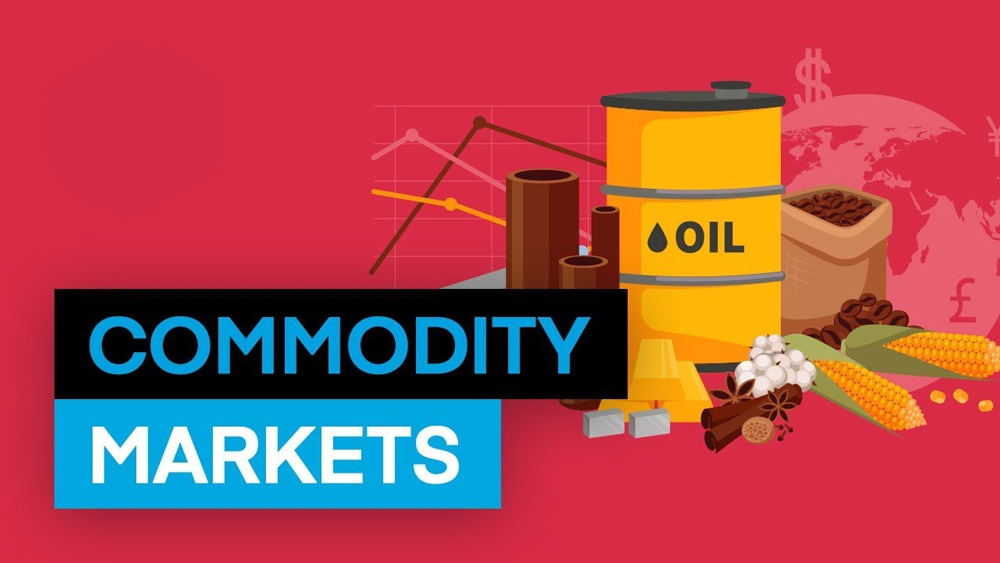News & Insights
Russia Warning Ignored By Commodities Markets
Russia Warning Ignored By Commodities Markets

The precious metal and oil markets may not react well to U.S. warplanes over Syria, as Russia has warned, which might be terrible news for both. The commodities market is a market of the goods we buy and sell. The basic commodities that are being sold worldwide include gold, platinum, and silver.
Russia provides more than 10% of the nitrogen and phosphate fertilizers used in France, which rises if we consider fertilizers with Belarusian and Ukrainian provenance.
They depend on gas costs, which account for 80% of the price of producing urea. Before the Ukraine War, there were supply issues with nitrogen fertilizers. Russia is a major supplier of gas and fertilizers to the European Union.
- Russian state oil pipelines operator Transneft cautioned on Monday that as more low-sulfur oil flows are directed eastward to China, the quality of Russia's important Urals crude exports to Europe will continue to decline in the coming year.
- Transneft said the levels of heavy metals in its westward export earnings would reach "a critical level" this year because the company lacks any additional technology devices to improve the quality of crude flows traveling west toward mostly European customers. Transneft forecasted a 2% increase in crude export sales by Russian companies next year.
- According to Transneft Vice President Sergei Andronov, "there will be no additional reduced volumes available for upgrading petroleum quality via other avenues due to a [planned] growth in low-sulfur oil deliveries to China."
- Long anticipated, the rise in sulfur levels in the Urals as Russia sells more quality crude through ports in the country's far east may enhance the pricing of competitor crude grades like Kazakhstan's valuable CPC crude, produced nearby.
- The former is exported via the CPC route, which is curiously not controlled by Transneft but rather by an international partnership through the Russian seaport of Novorossiisk.
Why Did Russia Warn The Commodity Market?

- In recent years, the demand for the Urals has decreased due to the emergence of substitute crudes in the eastern Mediterranean.
- According to Andronov, Transneft has kept the sulfur content of the oil it delivers to domestic refineries constant at roughly 1.63% since 2014 at the behest of the energy ministry.
- Because Russian refineries can only process oil with less than 1.8% sulfur, an increase in sulfur level poses a significant risk to local refining.
- As a result, the sulfur concentration in export flows increased to 1.61% from 1.51% over the same time.
- Transneft has proposed to divert high-sulfur oil into a different export flow to Ust-Luga to solve the issue, but the oil ministry is hesitant to accept this proposal. The ESPO blend's sulfur concentration stays at about 0.5%.
Demand For Urals
- The world's supply glut continued to weigh on the front end of the options curve overnight, with both Brent and WTI losing 1.0% in the Nyc session. An aggressive Fed. Governor Dudley made matters worse by making remarks that caused the U.S. Dollar to rise across all asset classes, leaving heavy crude with few allies overnight. The failure of Russia's Middle East saber-rattling to increase oil prices is a surprising event that could affect markets.
Final Words
Popular Posts
- Blockchain Istanbul Summit
- - The Blockchain Economy Istanbul Summit
- China Shifts Focus to Blockchain
- - As blockchain technology continues
- Bitcoin Taproot Upgrade
- - Bitcoin is one of the most popular
- Growth in Decentralized Finance
- - DeFi comprises a collection of
- Facebook Enters the Cryptocurrency
- - Facebook has announced the launch of
- End of the Bear
- - A There's been a lot of speculation
